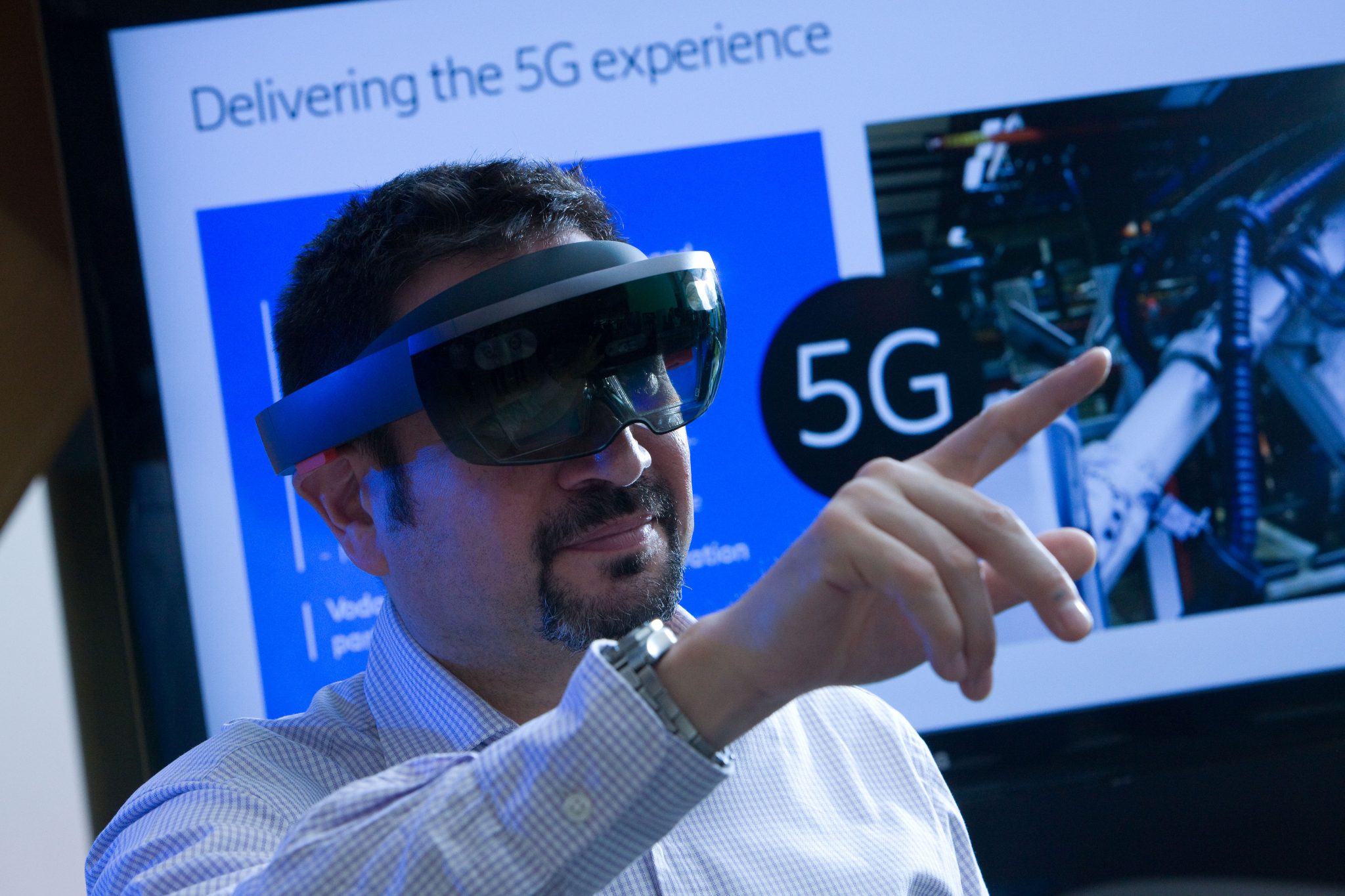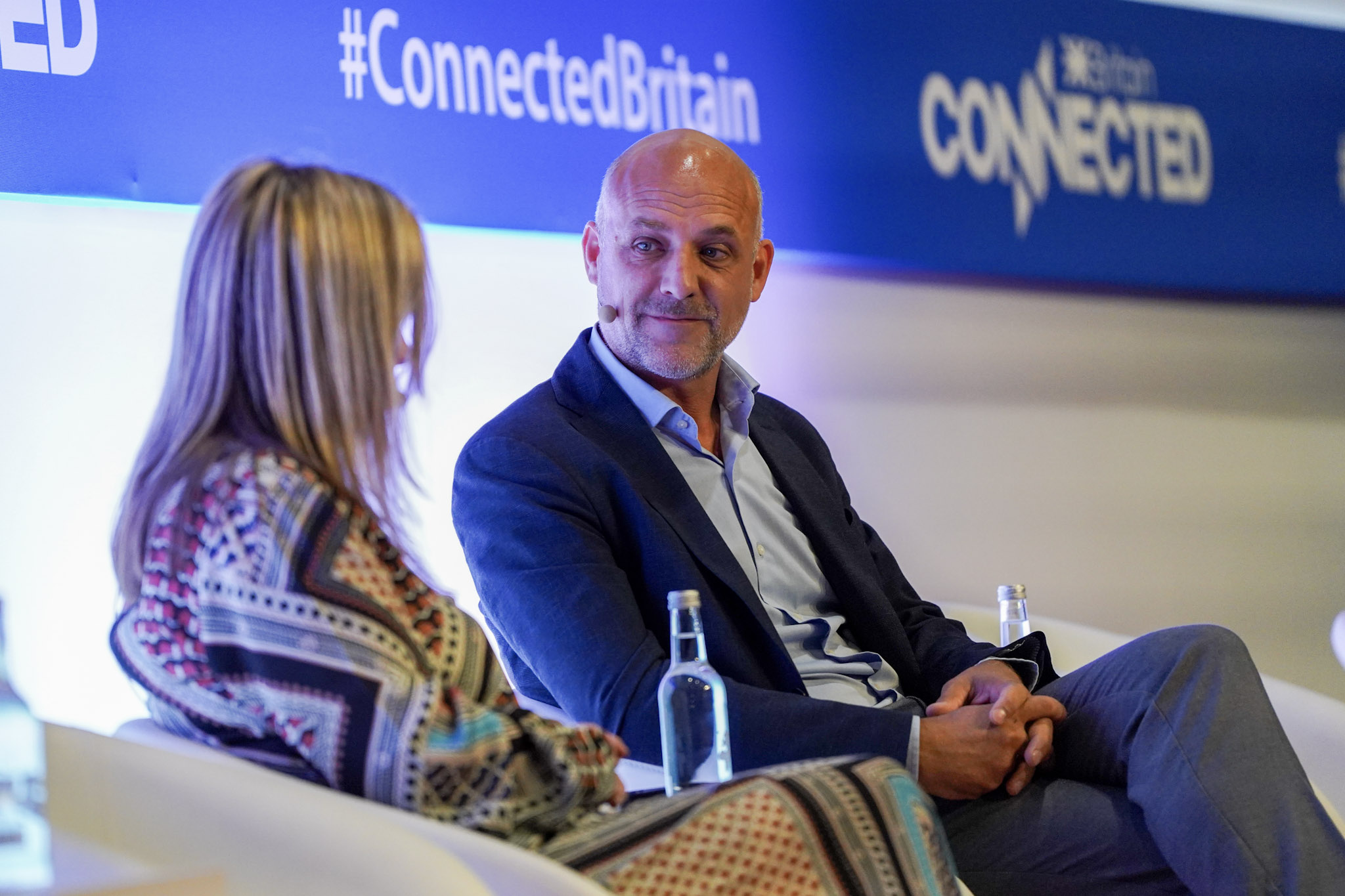
5G will underpin Gigabit UK, enabling advanced applications like connected homes, driverless cars, virtual reality and augmented reality, says Scott Petty, Chief Technology Officer at Vodafone UK.
5G is set to revolutionise how we live and work. It will underpin Gigabit UK, a nation where people and businesses enjoy ultra-fast connection speeds of 1 gigabit per second, low latency and more reliable network performance than ever, delivered by robust fixed and mobile technologies.
In Gigabit UK, advanced applications like connected homes, driverless cars, virtual reality (VR) and augmented reality (AR) will become part of our everyday world, enhancing the quality of our lives and helping to drive economic growth and productivity. But to build Gigabit UK, we need world-class digital infrastructure that will support 5G.
Investing in 5G requires a long-term strategy
In Ofcom’s April 2018 auction, Vodafone secured the largest slice of 5G spectrum, highlighting our commitment to investing in the UK’s digital future. By being at the forefront of the 5G revolution we can pave the way for Gigabit UK, and foster the development of new innovations that will change our lives for the better.
Now we’re working hard to get our network ready for 5G. Just a week after Ofcom’s auction, Vodafone celebrated a major milestone in UK telecommunications. We completed the first test of new 5G spectrum with a call connecting our Manchester hub and Newbury offices, marking the first time that the 3.4 Gigahertz (GHz) radio frequency allocated for 5G has been used for this purpose in the UK.

This month we announced plans to launch 5G trials in seven UK cities – Birmingham, Bristol, Cardiff, Glasgow, Liverpool, London and Manchester. Roll-outs will start between October and December this year, and our engineers are already laying the groundwork for 5G at more than 40 sites across these cities.
Today we’re still in the early chapters of the Gigabit UK story. Already we’re off to an exciting start, and below I’d like to share just a few of the ways we envision 5G transforming how we live, from connected homes and cars to emergency services and medical care. I’ll also talk about how we’re preparing our network for 5G, and why it’s essential that we have the right policy frameworks in place to support this next-generation technology.
The 5G-enabled smart home
Imagine a home that’s smart enough to keep itself secure and in tip-top shape all on its own, 24/7. Security sensors alert you to any unexpected visitors. Maintenance sensors warn you if a boiler is about to give out. Not only that, but your smart assistant immediately looks up suitable plumbers in the area, and offers to connect you right away.
A 5G enabled smart home is designed to cater to your exact preferences. The moment you enter a room, the lights turn on if it’s dark outside, and the temperature adjusts to the level you like. The fridge keeps track of your favourite items and their expiry dates, and lets you know what to consume first. You don’t have to worry about running out of milk because your fridge will remind you to buy some as you’re walking by the supermarket. Or if there are other essentials you’re running low on, a drone will automatically drop them off.
It’s early days, but smart home technologies are starting to come to market. At this year’s Mobile World Congress, Vodafone announced it is partnering with Samsung to launch “V-Home by Vodafone”, a range of Internet of Things (IoT) devices such as security cameras, smoke detectors, water leak sensors, smart lighting and smart heating, to improve security and energy efficiency in the home. With widespread 5G connectivity, even more homes will become smart homes, making life easier and more convenient.
Transforming transportation with 5G
Getting from A to B will be very different in a 5G world. Connected cars with digital dashboards will provide drivers with real-time traffic data and optimised, continually updated travel routes. An on-board digital assistant capable of reading facial expressions using emotion artificial intelligence (AI) will be able to tell if drivers are feeling tired or sleepy, and suggest a pit stop so they can rest. Some cars will be completely autonomous, enabling the user to get work done while in transit, or to stream music or video using the vehicle’s built-in entertainment system.

Automotive manufacturers have already begun developing cars that will transform the driving experience. Automobili Lamborghini, maker of the iconic luxury car, has partnered with Vodafone to provide IoT connectivity that will power a state of-the-art infotainment system for a super sports car. Starting from 2019, Lamborghini owners will be able to benefit from Vodafone connectivity in over 190 countries.
Improving vital services with 5G
5G will open up a whole new world of possibilities in enterprise applications, including services that are vital in an emergency. For example, paramedics transporting critically ill patients to hospitals will be able to use always-on, real-time videoconferencing to stay in constant touch with the A&E department, so that staff will know what to expect once the patient arrives. Already, a healthcare organisation in New Zealand has begun to track the condition of patients on the way to hospitals using IoT technology, according to the latest Vodafone IoT Barometer. Connected ambulances could become much more common in a 5G world.
We’re already starting to see how real-time connectivity can benefit emergency services.
https://www.youtube-nocookie.com/watch?v=aG3LZIM8agE
Consider Emergency One, the UK’s leading manufacturer of Fire, Rescue and Emergency Vehicles, which uses Vodafone’s IoT technology to connect fire engines for improved safety and efficiency. A digital fire engine can carry out multiple tasks automatically, from checking that the vehicle contains the right equipment to collecting required data. This frees up rescue workers to focus on their main task, saving lives.
Improving medical care with 5G
Advanced medical procedures that are uncommon today could be much more widely practised in a Gigabit future. For instance, through the ingenuity of remote surgery, a specialist in one part of the country could operate on a patient in another – all by moving a set of robotic instruments and using a robotic camera to see. The faster response times that 5G makes possible will be crucial in such a scenario.
We’ve already started to see the value of real-time connectivity in healthcare, thanks to a whole host of IoT-powered medical innovations available today.

Take Ekso GT, a robotic exoskeleton that wraps around the body, and is used to treat people with stroke and spinal cord injuries. A single, globally roaming Vodafone IoT SIM card in every Ekso GT suit collects real-time patient data from over 170 rehabilitation centres in North America, Africa and Europe. This data allows therapists to track patient progress and adapt their therapy sessions accordingly, which aids patient recovery. Technologies like Ekso GT are just the beginning of a promising new wave in medical innovation.
Getting our network ready for 5G
Whether we’re talking about 5G, 4G or 3G, our goal is the same – to deliver the best possible user experience.
The 5G spectrum Vodafone acquired is in one single “contiguous” block, meaning the bands are all within the same operating frequency. This will allow us to optimise deployment, because aggregating spectrum bands – linking them together to form a wider data transmission channel, which in turn increases capacity and boosts data speeds – is easier when the bands are continuous. Using the 5G spectrum we acquired, we can support the significant data growth we expect to see, as more people start to stream AR and VR content in ultra-high definition 4K and 8K.
We expect the 5G roll-out to follow a similar timeline as 4G. That means full commercial services are likely to arrive early in 2020, when a wider choice of compatible equipment and devices will be available. Getting to the point where 50% of all UK devices are on 5G could take another five years, meaning we would reach that critical halfway point in the mid-2020s. Our network won’t sit idle in the meantime – we’re carrying out field trials this year and next.
While we’re preparing for 5G, we’re also working hard to deploy high-capacity 4G spectrum in more towns, cities and rural areas, to significantly improve data speeds and the user experience. In London, we’re more than quadrupling 4G capacity as we upgrade sites in the north of the city. We’ve also doubled the 4G capacity in cities around the UK, to meet rising customer demand for data.
This rise is reflected in our data traffic: Vodafone carried 66% more last year compared to the year before, and more than 80% of that data was carried over 4G. Data speeds are rising as well. In fact, earlier this year we recorded data speeds of around 500 megabits per second (Mbps) on our London network. At that speed, you could download a 5GB HD movie in just over a minute.
Today, Vodafone delivers 4G coverage to around 98% of the UK population. There’s still more to do of course, and that’s why we’re continuing to invest – we’ve committed to a further £2 billion over the next few years, on top of the £2 billion we’ve already invested over the previous two years.
A policy framework that’s fit for 5G
The digital age calls for a fresh approach. Planning law reform is a welcome step, but we need more extensive changes if we are to build 5G networks. We need regulations and policies that encourage investment in digital infrastructure while also protecting consumers.
To deliver Gigabit UK and unleash the full power of 5G, we need unrestricted dark fibre access. Dark fibre would provide access to optical fibre already in the ground but not currently in use, vital to supporting full fibre networks and business connectivity ahead of 5G. Dark fibre will enable us to provide the unlimited bandwidth and low latency required to transmit data for real time applications.
We’re also calling for the removal of regulatory barriers that make rolling out or upgrading our mobile network costly and excessively time consuming. We need an improved process to make accessing public sector sites easier and more efficient, for instance. We also need changes to property law to reduce the cost of gaining access to public land.
We look forward to working with policymakers at every level – from local to national – as well as with private sector partners as we build a Gigabit UK that’s ready for 5G.

![pick and mix sweets assortment with scoops [Adobe Stock] stock photo of sweets at a pick and mix confectionary stand](https://www.vodafone.co.uk/newscentre/app/uploads/2024/02/pick-and-mix-sweets-assortment-with-scoops-Adobe-Stock.jpg)


![Spectator watching tennis and taking photo[Adobe Stock] stock image of a spectator watching tennis and taking a photo using their smartphone](https://www.vodafone.co.uk/newscentre/app/uploads/2023/07/Spectator-watching-tennis-and-taking-photoAdobe-Stock.jpg)